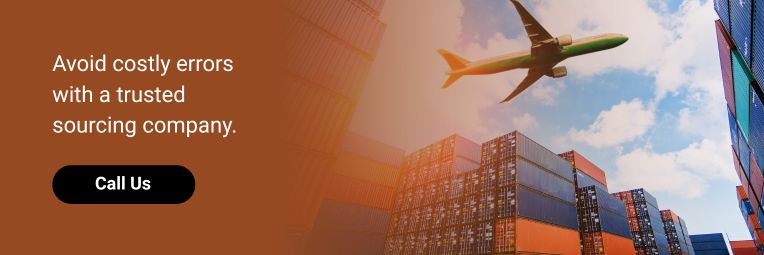Common Mistakes to Avoid When Working with Indian Suppliers
India has become a major global hub in product sourcing services, offering skilled labor, competitive pricing, and a wide variety of products from machinery and pharmaceuticals to textiles and handicrafts. To reduce costs and diversify the supplier base, partnering with Indian manufacturers is a wise decision. However, working with Indian suppliers comes with its own distinct obstacles. While many suppliers in India are highly professional and reliable, communication gaps, logistical issues, and cultural nuances can lead to delays, quality concerns, and misunderstandings if not managed properly.
Many times while sourcing products from India, importers (experienced or beginners) fall into avoidable traps due to lack of preparation, assumptions, or insufficient knowledge. Mistakes like misaligned expectations and documentation errors can result in costly setbacks. Whether you’re sourcing products for the first time from the sourcing companies of India or expanding your supply chain in India, be aware of these challenges.
The vendor management tips will help the business to build more reliable supplier relationships and ensure long-term success. Therefore, understanding the common mistakes and how to avoid them is crucial for a successful and smooth sourcing experience from India. This blog highlights how to avoid the most frequent mistakes companies make when working with sourcing companies in India and offers practical strategies to prevent them.
Working With Indian Suppliers: What Not to Do
1. Inadequate Supplier Vetting
Many businesses find suppliers on B2B platforms for sourcing products from India and trust them at face value, but certain platforms don’t guarantee quality and reliability.
This can be avoided by verifying legal documents like the company’s GSTIN (Goods and Services Tax Identification Number), Udyam/MSME certificate, and IEC (Import Export Code); asking contacts of past international clients and reaching out to them; or either visiting in person or hiring a third-party company.
2. Skipping Legal Contracts
Some buyers rely on verbal agreements and trust informal WhatsApp/email discussions. This further backfires if any dispute or quality failure happens.
Drafting and signing a formal, clear, written agreement outlining terms and quality requirements, payment terms, product specifications, pricing, quality standards, delivery schedules, intellectual property protection, and penalties.
3. Unclear Communication
Many times assumptions about mutual understanding lead to mismatches because they think they are in the same pace without confirming to each other..
Communication should always be clear by detailed product specs, measurements, tolerances, and packaging instructions in writing, including drawings, 3D renders, or physical samples, and confirming it through samples or prototypes.

4. Ignoring Quality Control
Initial samples may be perfect, but the bulk production can differ due to cost-cutting, material changes, and labor issues.
This could be avoided by arranging third-party inspections during pre-shipment and production, setting standard quality benchmarks, and using batch sampling methods for acceptance or rejection.
5. Payment Structure Issues
Paying large upfront deposits without safeguards exposes you to major risks like poor quality, delayed shipments, or even fraud.
Negotiating a split payment structure,using a Letter of credit or escrow services also avoiding full payment until product inspection is done
6. Neglecting Import/Export Documentation
This problem arises when not ensuring the proper shipping documents (BL, CO, invoice, packing list) from the suppliers.
Clearly specify the documentation needed for customs clearance and also check if the supplier has experience with international trade. The supplier must have an Import Export Code (IEC) because it is a mandatory legal requirement for procurement services.
7. No Contingency Plan
Dependency on a single supplier can affect your business immensely if they fail to deliver or shut down.
Avoid having all sourcing dependent on one supplier , qualify multiple suppliers across regions, as a sourcing agent.
Conclusion
Sourcing products from India requires more than just finding the right product at the right price; it also demands clear communication, a proactive approach, and thorough due diligence. Many businesses face obstacles when sourcing from India because they overlook important details such as the complexities of international logistics, quality control, cultural differences, or legal agreements. To avoid the hassle of dealing with such issues, consider working with a product sourcing company like Inductus Global.
At Inductus Global, we understand the effective business negotiation process and offer personalized business negotiation services to make sure your business exceeds customers expectations in every stage of sourcing and procurement. Our QA, or quality control, services are deeply rooted in research and industry standards, offering a structured approach to ensure product excellence while eliminating risks, ensuring compliance, and satisfying customer needs. Inductus Global also offers a comprehensive service suite in mass production management to ensure a constant and standard flow in production lines.









